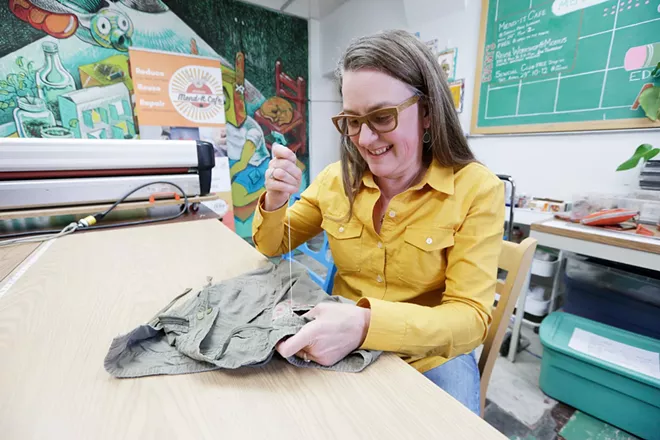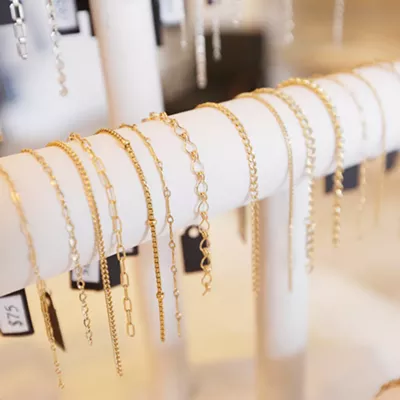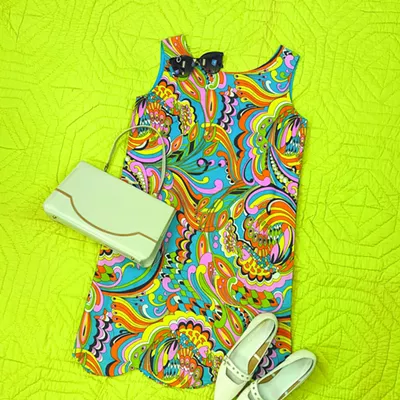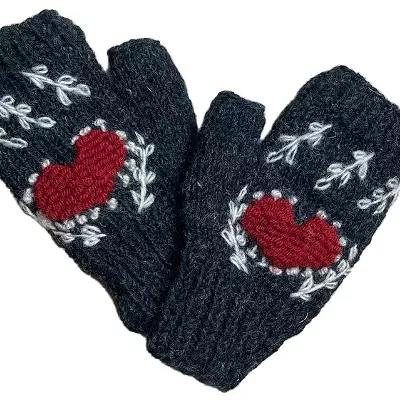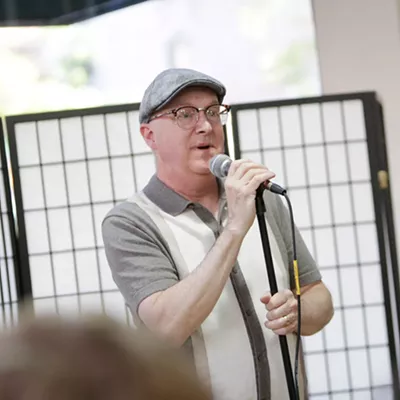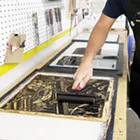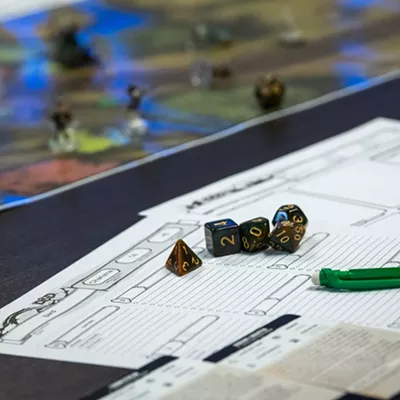Favorite shirt got a hole in it? Dress hem coming undone? Broken zipper on your jeans?
Organizers of Spokane's first pop-up Mend-It Cafe invite people to "sew it, don't throw it" by bringing clothing and other textiles in need of minor repairs to be fixed up by volunteer sewists.
A collaboration between Art Salvage Spokane and Spokane Zero Waste — both are nonprofits focused on sustainability and keeping usable materials out of the waste-stream — the Mend-It Cafe event is free to the public.
The process is simple: Show up any time during the four-hour event at the Shadle Park Library with an article of clothing or textile item needing repair. After checking in, you'll be paired with one of five menders — all hobbyists with extensive and diverse sewing experience — based on what needs to be fixed. Then, watch and learn.
"The waste coming out of the fashion industry and the production of textiles in general is so resource-intensive, so it's problematic on both ends," says Elyse Hochstadt, executive director of Spokane Zero Waste.
"It just seems like a good place to make real change. And the whole repair model is about having agency over your things rather than having things own you, right?" she continues. "So being able to teach people how to repair simple stuff — put in a new zipper, sew on a button, patch up a hole, or have some sort of personal imprint into what you're wearing with visible mending — I think we're starting to see a real trend of that happening."
The Mend-It Cafe is partly the culmination of a workshop series that Art Salvage began late last year to teach basic sewing skills and simple alterations like hemming pants.
During those workshops, some attendees brought specific items they wanted to learn how to fix. One session focused on visible mending, a technique employing colorful embroidery, decorative stitches, fabric patches, or other creative embellishments to repair holes, cover stains or fix other fabric damage.
A main goal of visible mending is to highlight — versus hide, as with invisible mending — an imperfection with the intent of celebrating a textile's past life. While historically a necessity of the working class for centuries, visible mending has more recently reemerged as a counter to fast fashion, and a way to personalize one's clothing. Among the many inspirations for visible mending is the traditional Japanese art of sashiko stitching used to strengthen, reinforce and patch worn clothing. Sashiko mending is usually done in white thread with repeating, geometric patterns over a patched area, and today it is a method frequently used to repair denim. (For more stunning examples, check out the hashtag #visiblemending on Instagram.)
While time constraints of the Mend-It Cafe may not allow for detailed visible mending requests like these, Art Salvage executive director and founder Katie Patterson Larson says the event also showcases how to get creative with DIY mending.
"We'll also have examples of mended items so there's inspiration to get people thinking about the whole scope of repair and mending textiles, and things for people to do if they have to wait a little bit before they get to the mender," Larson says.
Scraps of fabric, needles and thread will be on hand for experimentation at Mend-It. There will also be refreshments to go with the cafe theme.
To help menders know what to expect, those who plan to attend are encouraged to RSVP on the Facebook event page (find it by searching for Spokane Zero Waste or Mend-It Cafe). Attendees should bring only one item each. All are welcome to hang out and work on their own projects after being helped, too.
"One of the other things that we're talking about at this particular cafe is clothing care," Hochstadt says. "For helping it to last longer, but also to diminish the amount of microplastics that are shed. The No. 1 thing you can do is keep it out of the dryer, like most or all of your synthetics. And if you can, wash less often. We have this idea that we have to wash our clothes after we wear them every time, and that's just too much [for most items]."
Although the upcoming Mend-It Cafe is focused on textile repairs, Hochstadt hopes to see Spokane Zero Waste and other community partners team up to host future events centered around fixing all kinds of things.
Known as repair cafes, these public events — and in some cities, permanent spaces — are free resources promoting sustainability and the sharing of knowledge on how to repair things from appliances to electronics, clothing to small household items. A worldwide movement, the repair cafe concept started in Amsterdam in 2009.
MEND-IT CAFE
The first pop-up is Sat, May 20 from 11 am-2 pm. It's free to attend at Shadle Park Library, 2111 W. Wellesley Ave. For more info visit artsalvagespokane.com or spokanezerowaste.org
"A lot of this is about community resilience and creating those connections with one another over being able to repair things, or make things," Hochstadt says. "I think people sometimes are fearful about being creative and self-expressive, and these kinds of opportunities help to dissipate that and allow people agency to go ahead and do something."
Funding for the Mend-It Cafe comes from a Renew Seed Grant through NextCycle Washington, a statewide nonprofit supporting efforts that reduce waste and encourage recycling and reuse.
For those who want to continue to explore sewing and mending techniques in a supportive, communal setting, Art Salvage hosts a regular drop-in sewing session called Sewcial Club, hosted by seamstress Beth LaBar. The next meeting is set for Saturday, July 8 at its West Central location, 1925 N. Ash St., and again on Sept. 9.
"It's a drop-in group for anyone to come and participate for free," Larson says. "We try to make it clear that it's really about community and [we're] not going to teach you, but it's fun for people to come in and have that community and troubleshoot or ask questions and mend some things together." ♦

